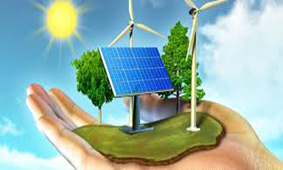
Iran Vows to Win Share in Global Biotechnology Market


“Advanced countries in the world have adopted a biotechnology-based economy by following a non-oil-based economy approach,” Qaneie said today.
He added that Iran is too planning to take up to three percent share in the world’s biotechnology-based economy.
He stressed the need for bringing the academic environment all the more closer to industries, hailing the country’s 15,000 biotechnology graduates as a great opportunity for development.
Qaneie further said that the Biotechnology Development Council has plans to create sustainable jobs in the field of biotechnology and to take up a considerable share of knowledge-based economy.
Back in December, Qaneie had said that by 2020, 43 biopharmaceuticals and 25 anti-cancer drugs would be produced by companies supported by the Council.
Earlier on December 22, Tehran’s Ambassador to Malaysia Marziyeh Afkham announced that Iran is increasing its participation in world's scientific progress, adding that currently the country is top producer of science and technology in the region.
Afkham, in an address to the ceremony, said, “These conditions have paved the way for presence of Iranians in the development and expansion of business cooperation, effective presence in various economic projects, including in the field of knowledge-based companies and strengthening the relationship between university and industry more than ever.”
Expressing some of the effects and results of Iran's scientific uprising in the new era in regional and international arenas, Afkham pointed out that Iran's scientific-research capacity and advances in the fields of the new sciences have led to an improvement in the ranking and deepening of the world's belief in power and consolidating a top position for Iran and developing countries.
The scientific attaché of Iran in South East Asia and Australia at this ceremony also presented the scientific reports on the status of research and scientific papers and the development of the activities of universities in the Islamic Republic of Iran over the recent years, the sections of the ongoing programs as well as priorities Iran's scholarly advisory in the region.
A week before that, Head of Iran's Science and Elites Committee Ahmad Faza'eli said that Iran is pioneering in scientific growth among the world states.
"Iran has had the fastest scientific growth in the world, which has been 11 times higher than the average global rate," Faza'eli said, addressing a forum in Tehran.
He added that Iran ranks first in the region and 16th in the world in production of science.
Faza'eli also noted that Iran stands among the top 11 world states in satellite-launch technology and ranks 8th in the world in orbiting satellites.
Iran has made huge progress in different sciences and technologies in recent years.
Iranian Vice-President for Science and Technology Sorena Sattari announced earlier in December that Iran stood atop the nations of the region in the production of science and technology.
"Now, Iran ranks first in the region in science and technology," Sattari said, addressing a forum on stem cells in Tehran.
He also referred to Iran's huge progress in the field of stem cells, and said that the country had been able to take over Turkey and Israel in this field.
Sattari underscored that Iran's progress in the field of stem cells and regenerative medicine had opened a door to the development of knowledge-based economy.
Also, in June, Sattari underlined that Iran's international ranking in science production had risen from 34th to 16th.
"Iran ranks first in West Asia in terms of science output with the number of its college students rising to 4.8 million from 2.4 million," Sattari said, addressing the second Iran-Europe Cooperation Conference in Brussels, Belgium.
He reiterated that Iran had made great progress in the fields of biotechnology, renewable energy, nanotechnology and stem cells.
Sattari said that there were 47 million internet users in Iran who constitute nearly half of the total Internet users in the Middle East, and added, "Iran ranks first in the Middle East for production of biological drugs."
He said that Iran had one of the most successful biotech companies with young and skilled staff aged 33 on the average which exported biological drugs to 10 countries, Sattari said.
Of 39 technology parks existing in Iran, Paris Park is one of the largest in West Asia which houses 200 companies and some of them export advanced technological products, he added.


Trump weighs using $2 billion in CHIPS Act funding for critical minerals

Codelco cuts 2025 copper forecast after El Teniente mine collapse

Electra converts debt, launches $30M raise to jumpstart stalled cobalt refinery

Barrick’s Reko Diq in line for $410M ADB backing

Abcourt readies Sleeping Giant mill to pour first gold since 2014

Nevada army depot to serve as base for first US strategic minerals stockpile

SQM boosts lithium supply plans as prices flick higher

Viridis unveils 200Mt initial reserve for Brazil rare earth project

Tailings could meet much of US critical mineral demand – study

Kyrgyzstan kicks off underground gold mining at Kumtor

Kyrgyzstan kicks off underground gold mining at Kumtor

KoBold Metals granted lithium exploration rights in Congo

Freeport Indonesia to wrap up Gresik plant repairs by early September

Energy Fuels soars on Vulcan Elements partnership

Northern Dynasty sticks to proposal in battle to lift Pebble mine veto

Giustra-backed mining firm teams up with informal miners in Colombia

Critical Metals signs agreement to supply rare earth to US government-funded facility

China extends rare earth controls to imported material

Galan Lithium proceeds with $13M financing for Argentina project

Kyrgyzstan kicks off underground gold mining at Kumtor

Freeport Indonesia to wrap up Gresik plant repairs by early September

Energy Fuels soars on Vulcan Elements partnership

Northern Dynasty sticks to proposal in battle to lift Pebble mine veto

Giustra-backed mining firm teams up with informal miners in Colombia

Critical Metals signs agreement to supply rare earth to US government-funded facility

China extends rare earth controls to imported material

Galan Lithium proceeds with $13M financing for Argentina project

Silver price touches $39 as market weighs rate cut outlook

















